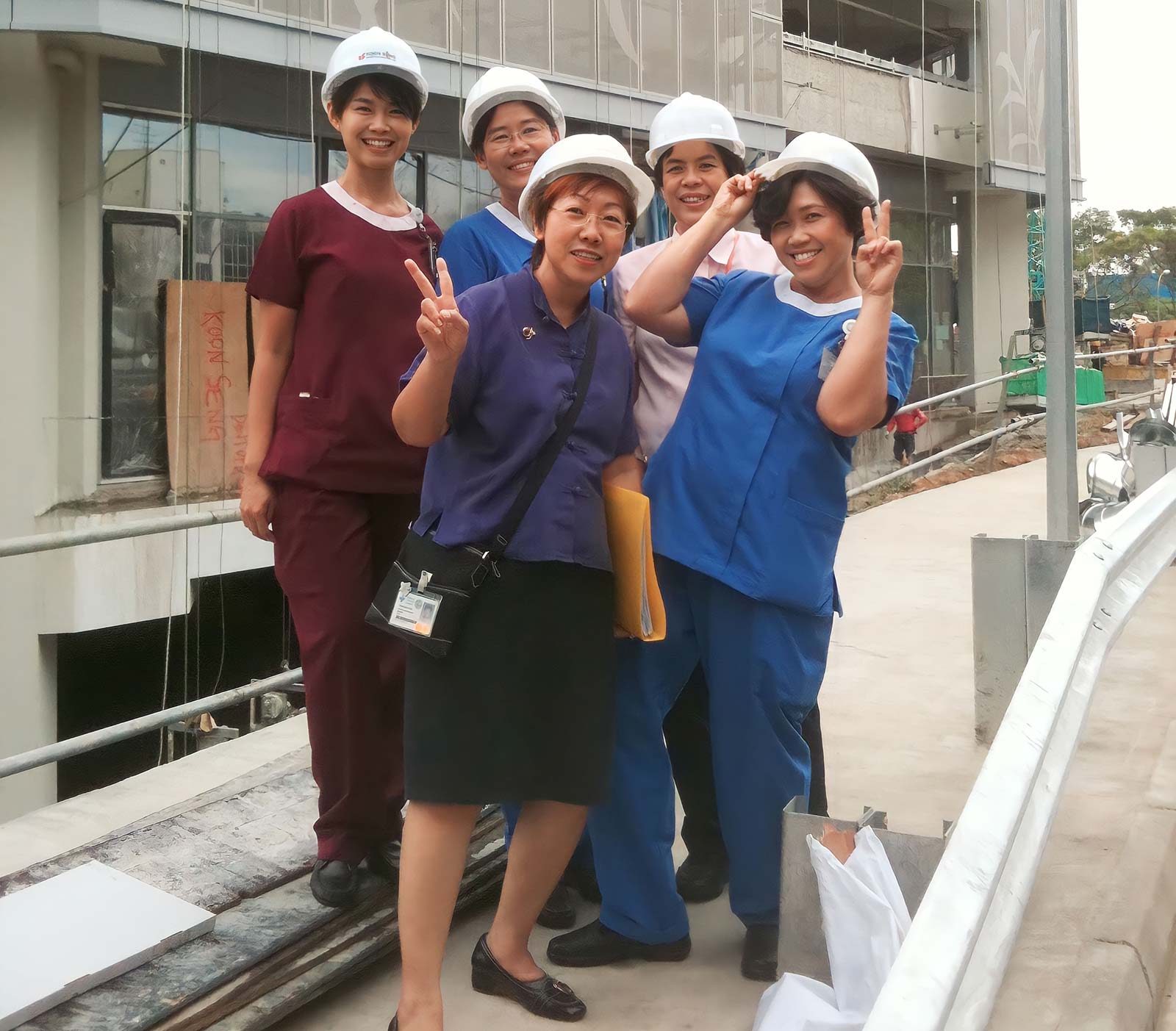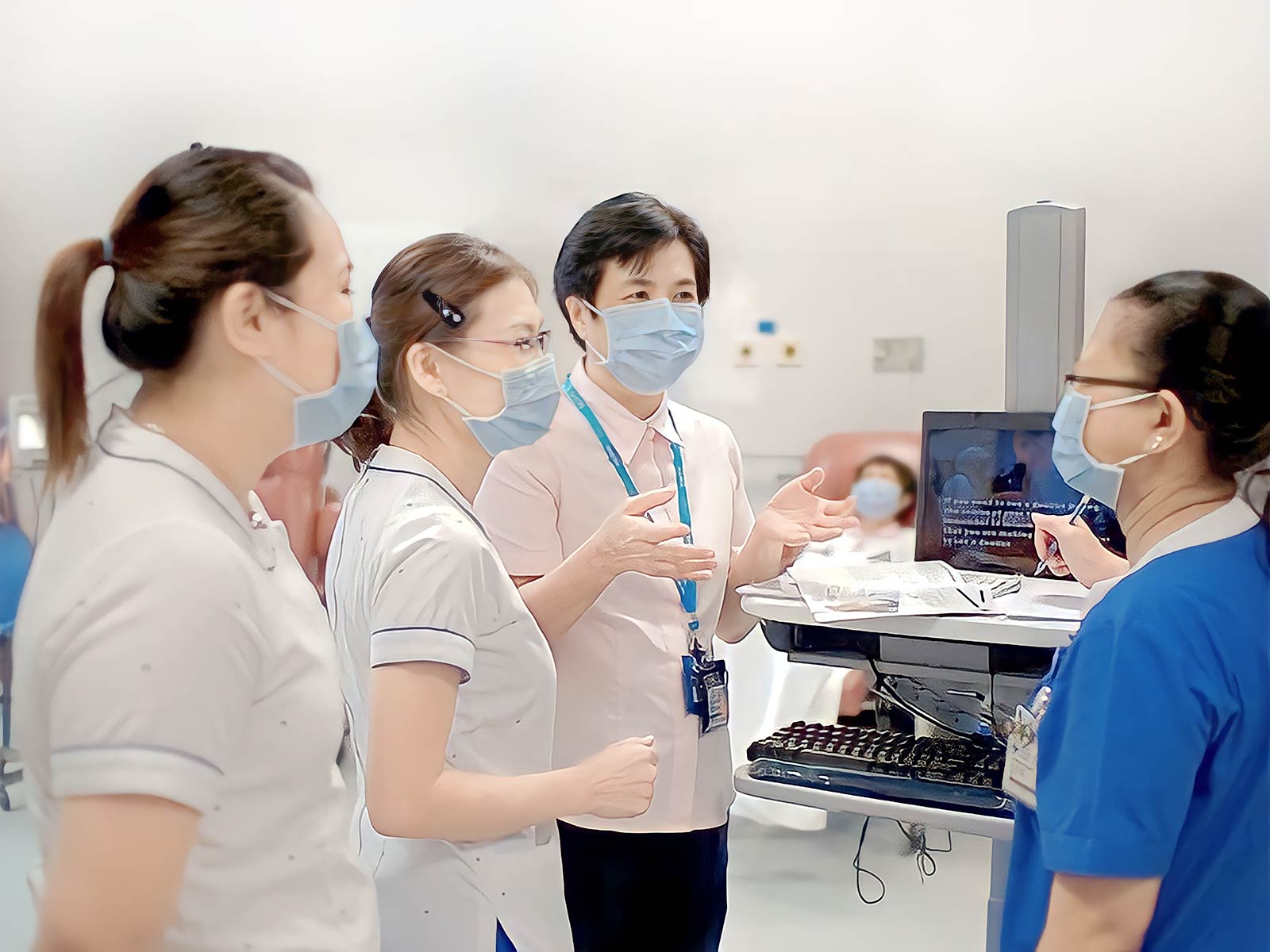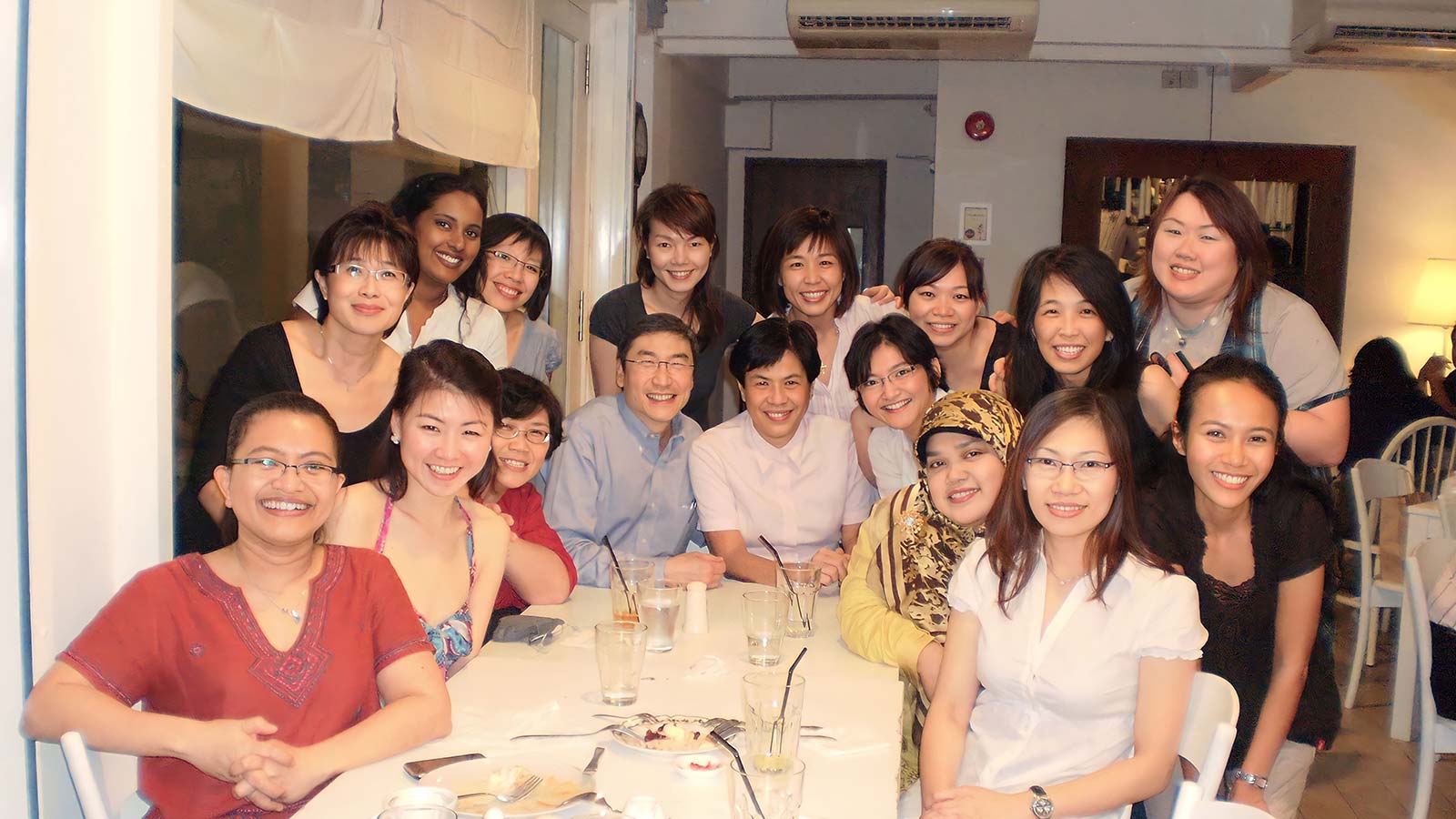
Prof Emily and NCIS nurses at the NUH Medical Centre worksite.
Educated and trained in Australia and the UK, Prof Ang is a member of numerous educational institutions and national nursing committees, lending her insights and perspectives on nursing curriculum and manpower training. For her service to the profession, the mother of an adult child has been conferred various awards, notably the President’s Award for Nurses, the NUHS-Mochtar Riady Pinnacle Excellence Award as well as the Public Service Administration, Gold (COVID).
From 1 July, she takes a back seat (way back of the bus, she emphasises) as Associate Professor Liaw Sok Ying takes over the helm at NUS Nursing. It is a welcome change she says. “It has been many years; I am tired, and it is good to let someone younger and more capable take over.” Her successor is grateful for the solid foundations laid by her erstwhile mentor. She walks her talk, leads by example, develops people, says Assoc Prof Liaw. “Prof Ang has influenced the nursing community through aligning academic-clinical collaboration, which enables the close collaboration of NUS Nursing with various industry stakeholders, bridging the theory-practice gap.”
But perish the thought of a gap year or longish sabbatical—Prof Ang’s new role of consultant and advisor to NUS Nursing and NUHS brings a gleam to her eyes because the job centres on the development of Nursing professionals. “Tomorrow’s nurses must be up to the complex healthcare challenges that they will encounter, and that means they must possess competent Nursing skills and experience, seek constantly to update and upgrade themselves professionally. And be able to teach and coach.”






